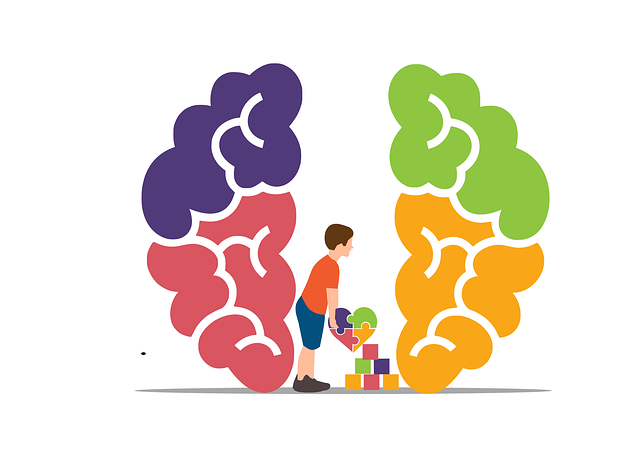In a diverse healthcare setting, cultural competency is key to delivering equitable care to Mandarin Chinese-speaking populations. Overcoming language barriers and cultural differences builds trust and improves patient satisfaction. Recognizing and respecting their holistic health practices, like Mindfulness Meditation, creates an inclusive therapy environment. Customized mental wellness programs for this community enhance overall mental health outcomes, addressing unique challenges faced by Mandarin Chinese speakers in healthcare access and satisfaction, including effective therapy for Mandarin Chinese speaking individuals.
“Cultural competency in healthcare is essential for providing equitable services to diverse communities, particularly Mandarin Chinese speaking populations. This article explores the significance of addressing language and cultural barriers that impact patient care. We delve into strategies for designing and implementing effective training programs for healthcare providers, focusing on enhancing understanding and communication with Mandarin Chinese speakers. By examining these key areas, we aim to revolutionize therapy and improve outcomes for this unique demographic.”
- Understanding Cultural Competency in Healthcare for Mandarin Chinese Speaking Communities
- The Impact of Language and Cultural Barriers on Patient Care
- Designing and Implementing Effective Training Programs for Healthcare Providers
Understanding Cultural Competency in Healthcare for Mandarin Chinese Speaking Communities

In the diverse healthcare landscape, cultural competency is an essential aspect that ensures quality and equitable care for all communities, including Mandarin Chinese speaking populations. Understanding and addressing cultural nuances in therapy is crucial for building trust and fostering meaningful connections between healthcare providers and patients from these communities. Many Mandarin Chinese speakers may face unique challenges, such as language barriers, cultural differences, and historical experiences, which can impact their access to and satisfaction with healthcare services.
Cultural competency involves recognizing and appreciating the diversity within this community, understanding their values, beliefs, and traditional practices related to health and wellness. For instance, many Mandarin Chinese individuals emphasize holistic approaches to mental wellness, incorporating practices like Mindfulness Meditation and Journaling Exercise Guidance. Integrating these cultural perspectives into therapy sessions can create a more inclusive environment. Moreover, developing Mental Wellness Coaching Programs tailored to meet the specific needs and preferences of this community can significantly enhance their overall mental health outcomes.
The Impact of Language and Cultural Barriers on Patient Care

Language and cultural barriers can significantly impact patient care, creating challenges for both healthcare providers and patients, especially in diverse communities where various ethnic and linguistic groups coexist. When a patient’s primary language differs from that of the healthcare professional, effective communication becomes an obstacle to quality treatment. This is particularly relevant for communities with high concentrations of Mandarin Chinese speakers, who may face difficulties accessing culturally sensitive care.
For instance, without proper translation services or trained professionals, a Mandarin-speaking patient might struggle to convey their symptoms accurately, leading to misdiagnosis or delayed treatment. Similarly, cultural norms and beliefs can influence how patients express pain, seek medical advice, and interpret diagnoses, requiring healthcare providers to adapt their therapy for Mandarin Chinese speakers and engage in mindfulness meditation techniques. Incorporating self-awareness exercises during Healthcare Provider Cultural Competency Training can help professionals develop the sensitivity needed to overcome these barriers, ensuring that all patients receive equitable care tailored to their cultural and linguistic backgrounds.
Designing and Implementing Effective Training Programs for Healthcare Providers

Effective training programs for healthcare providers should be designed with a clear understanding of the diverse patient population they serve. When catering to a specific cultural group, such as Mandarin Chinese speaking individuals, tailored educational initiatives become imperative. These programs should go beyond basic language translation and encompass cultural nuances, traditions, and beliefs that influence health practices and perceptions. For instance, integrating therapy for Mandarin Chinese speaking patients into training ensures healthcare providers are equipped to offer sensitive, culturally responsive care.
The implementation of these training sessions can involve interactive workshops, role-playing scenarios, and guest lectures from cultural experts. Engaging activities foster a deeper understanding of cultural barriers to healthcare access and promote the development of public awareness campaigns that cater to specific communities’ needs. Moreover, incorporating stress management techniques and self-care practices into the curriculum empowers providers to support their well-being while delivering care, especially when navigating complex cultural interactions.
Cultural competency training is a vital step in enhancing healthcare services for Mandarin Chinese speaking communities. By addressing language and cultural barriers, healthcare providers can significantly improve patient care outcomes. The strategies outlined, including tailored education programs, will enable professionals to deliver more inclusive and effective therapy for this demographic. This ensures that cultural sensitivity becomes an integral part of healthcare delivery, fostering better relationships and improved health outcomes for all.














